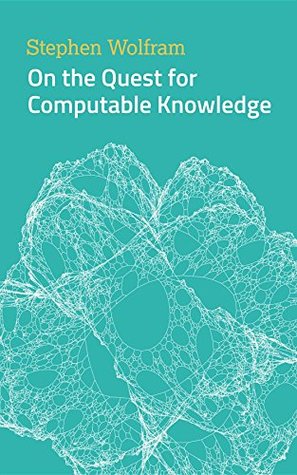More on this book
Kindle Notes & Highlights
So what do I mean by “computable knowledge”? There’s pure knowledge—in a sense just facts we know. And then there’s computable knowledge: things we can work out—compute—somehow. Somehow we have to organize—systematize—knowledge to the point that we can build on it—compute from it. And we have to know methods and models for the world that let us do that computation.
The notion—found in the works of Aristotle—that the structure of human arguments, of human reasoning, can be represented in a stylized form—using logic. The idea that just as numbers let one abstractly count things, so logic could let one abstractly see the structure of certain forms of deduction and reasoning—and rhetoric. So that one could find ways to derive conclusions about the world by structured, formal reasoning.
Today is an exciting moment—indeed, I suspect, a defining moment in human history. We are making a transition from a world in which computation is just one element to a world in which computation is our central concept, in which our thinking, our actions, and our knowledge all revolve around computation. And what makes this possible is that we are finally now getting into a position where we can take all that knowledge that we as humans have accumulated in our civilization, and encapsulate it in an active computational form. And when we do this, we make it possible to dramatically extend and
...more


